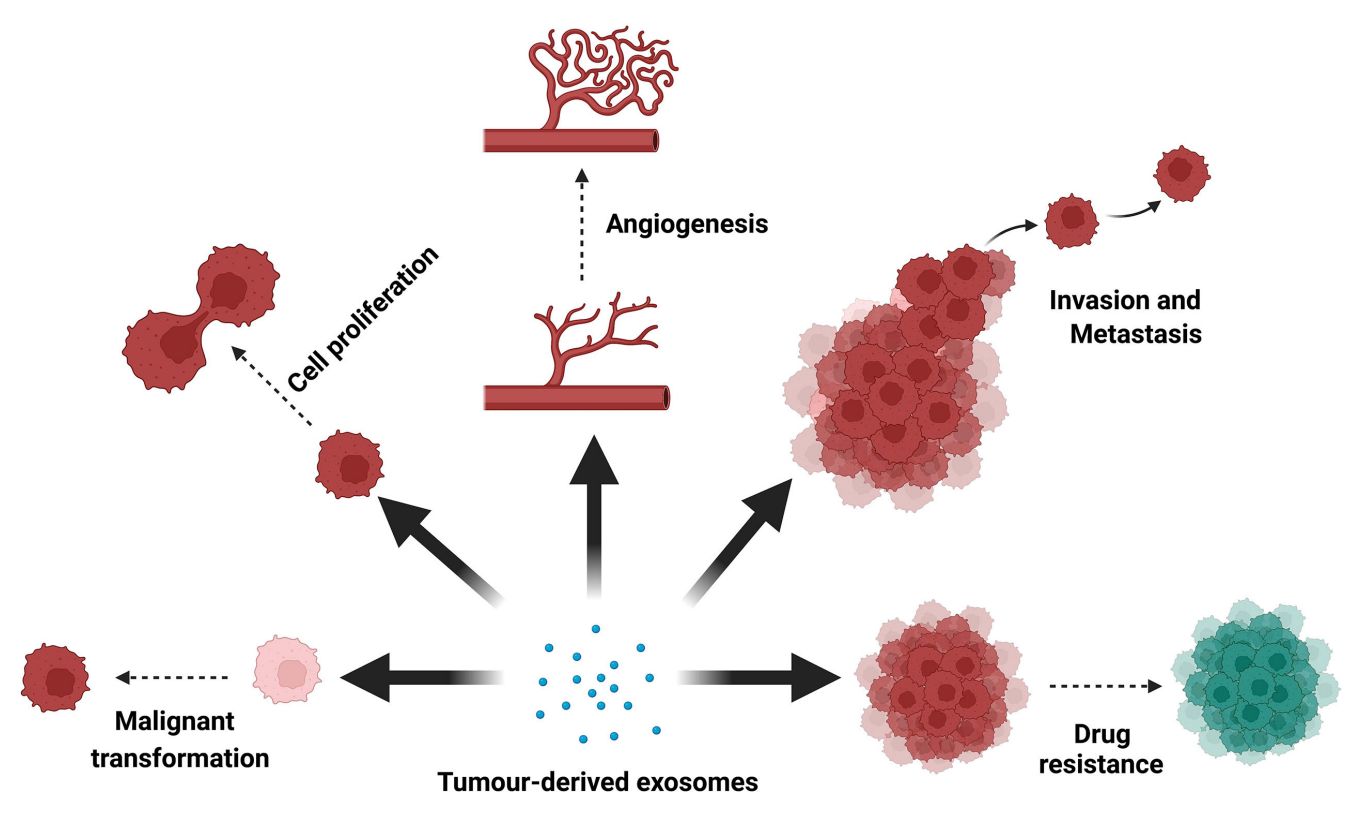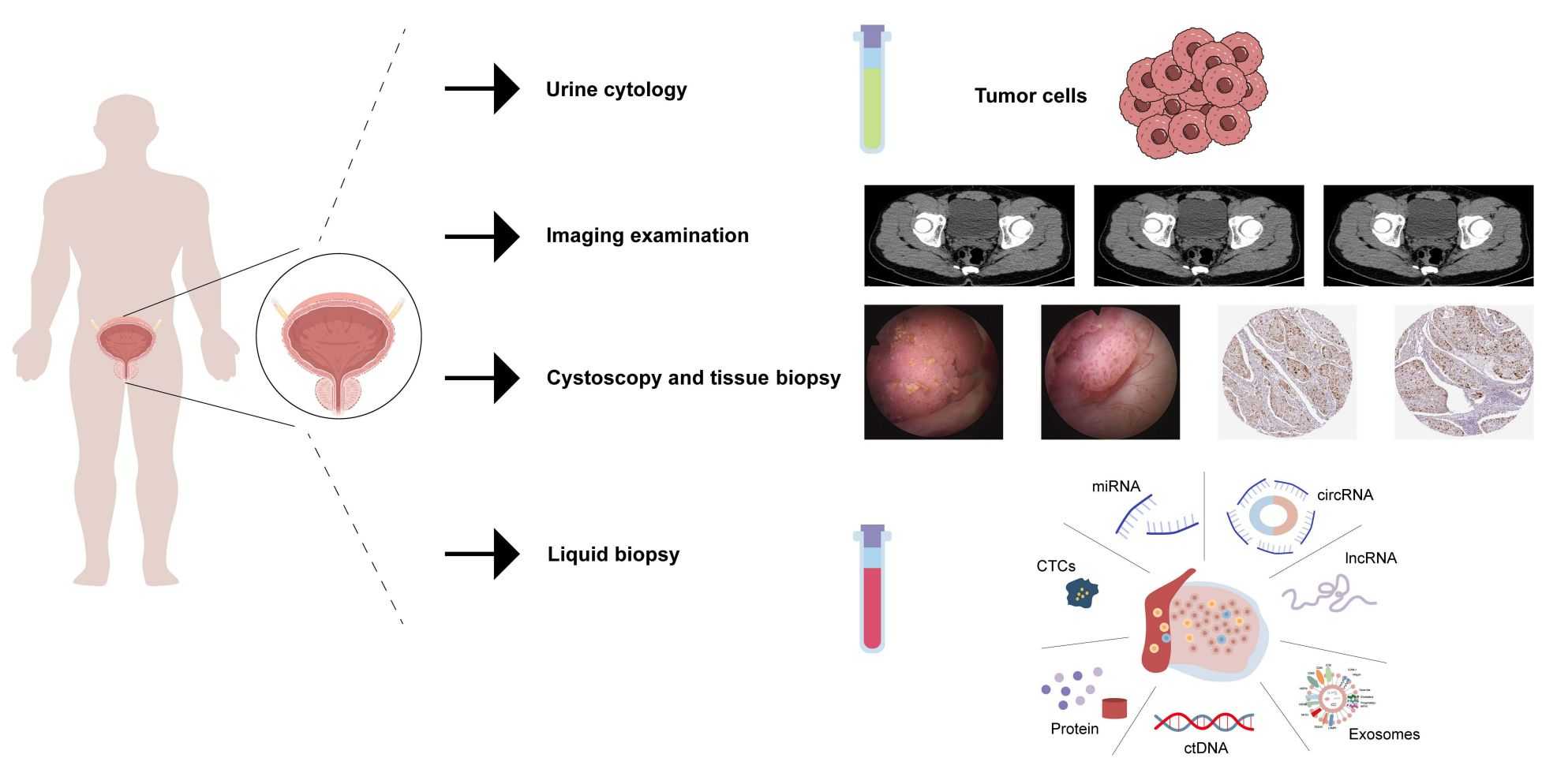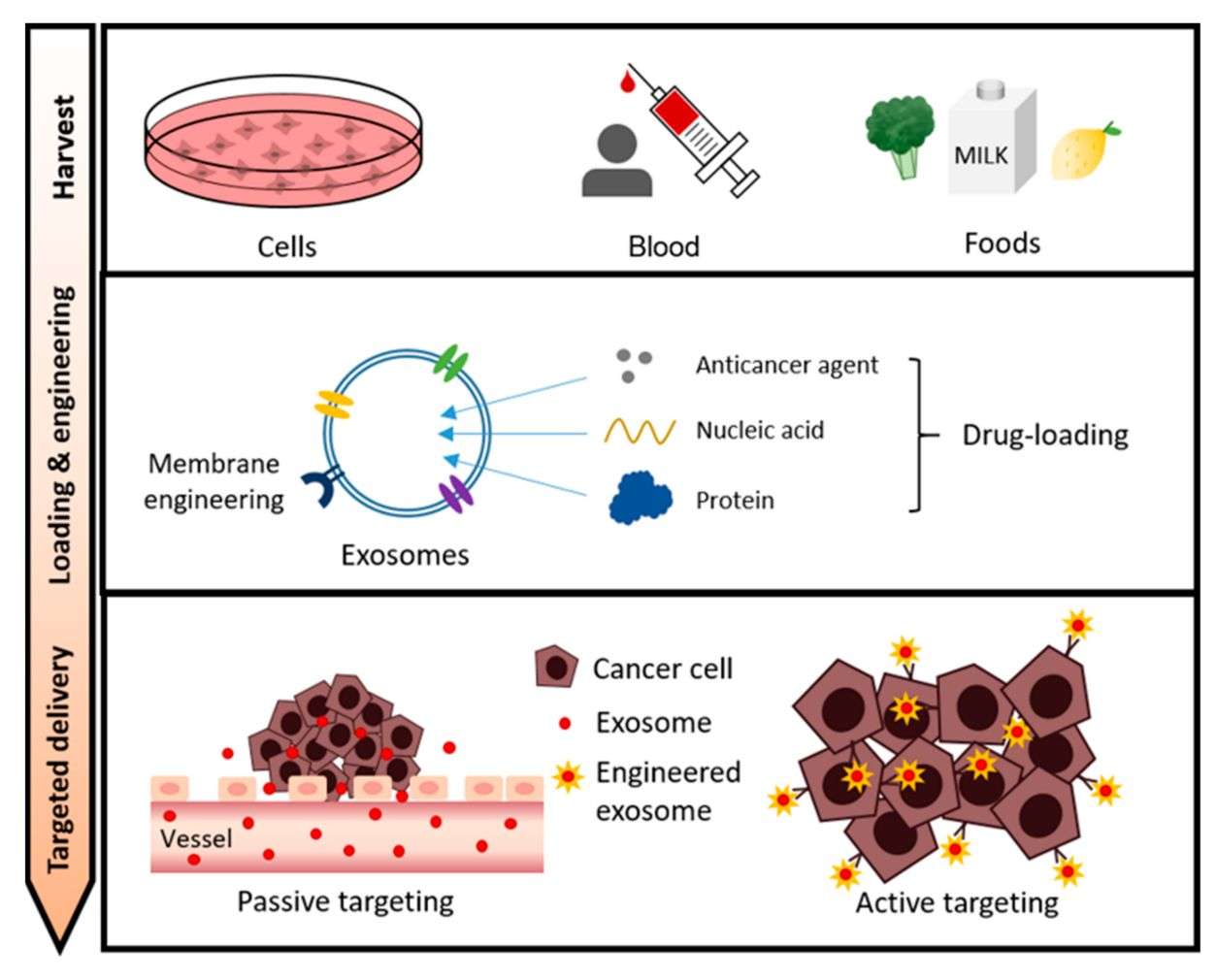Exosome Research in Human Bladder Cancer
Bladder cancer (BCa) occurs on the bladder mucosa and is one of the most common malignant tumors of the urinary tract. BCa is strongly vascularized, and the aberrant tumor vascular network triggers a nutrient-deficient tumor microenvironment (TME) that activates endothelial cell (EC) function and stimulates neovascularization, thereby promoting cancer progression. Currently, radical cystectomy is the standard treatment option for BCa patients, but it has a high recurrence rate. Therefore, clarifying the mechanisms of bladder cancer progression and finding new targets for bladder cancer treatment is significant.
In recent years, exosomes have emerged in BCa research. Exosomes are rich in biologically active molecules, which help elucidate the complex mechanisms of BCa pathogenesis and metastasis, and can serve as biomarkers for early BCa diagnosis and targeted drug delivery carriers to improve therapeutic efficacy and mitigate adverse effects. In addition, exosomes are involved in the complex molecular signaling network related to BCa progression, which can be used to reveal new therapeutic targets.
The Role of Exosomes in the Occurrence and Progression of BCa
In recent years, exosomes have attracted much attention as important mediators of cancer-related intercellular communication. Exosomes carry biomolecules from donor cells and play a critical role in transmitting proteomic and genetic information to target cells. In the BCa microenvironment, exosomes alter recipient cells by interacting with host immune cells, epithelial cells, and tumor cells to promote tumor proliferation and metastasis. For example, the exosome miR-21 promotes BCa progression by polarizing tumor-associated macrophages through the PI3K /AKT pathway. BCa-derived exosomes can promote the malignant transformation of non-malignant cells through activation of endoplasmic reticulum stress-induced unfolded protein responses and in vitro inflammation. In addition, cancer-associated fibroblast-derived exosomes directly transporter miR-148b-3p into BCa cells, leading to enhanced metastatic behavior and drug resistance in cancer cells.
 Figure 1. The role of exosomes of bladder cancer origin. (Lee N, et al., 2022)
Figure 1. The role of exosomes of bladder cancer origin. (Lee N, et al., 2022)
Exosomes are rich in proteins, lipids, and nucleic acids similar to those of donor cells and are widely distributed in human body fluids. Numerous kinds of research have shown that exosomes are involved in the progression of BCa and influence the biological behaviors of cancer cells such as proliferation, invasion, and metastasis.
As a leader in the field of exosome research, we provide a comprehensive range of cancer cell-derived exosomes to help clients discover new biomarkers for early diagnosis and treatment of BCa.
| Cat No. | Product Name | Source |
| Exo-HDBF-14 | HQExo™ Exosome-SDH-Bladder Cancer Plasma exosome | Exosome derived from Single Donor Human Bladder Cancer Plasma |
| Explore All Exosomes Isolated from Human Bladder Cancer Plasma | ||
Exosomes in BCa Diagnosis and Prognosis
Research has confirmed that exosomes secreted by BCa cells can be isolated from blood and urine, and functional components such as proteins and nucleic acids are stably present in these exosomes. Therefore, the analysis of exosomes and their components is expected to provide valuable clues for the diagnosis of BCa.
 Figure 2. The role of exosomes of bladder cancer origin. (Yin C, et al., 2024)
Figure 2. The role of exosomes of bladder cancer origin. (Yin C, et al., 2024)
- Exosomal RNA as Biomarker for BCa
Research has identified nucleic acids in urinary exosomes as promising diagnostic biomarkers for BCa. Research on mRNA expression found that LASS2 and GALNT1 were present in BCa patients, while ARHGEF39 and FOXO3 were present only in healthy controls. Using RNA sequencing, the researchers identified an RNA panel consisting of three mRNAs (KLHDC7B, CASP14, and PRSS1) and two lncRNAs (MIR205HG and GAS5) capable of differentiating between BCa patients and healthy individuals. In addition, research has demonstrated that the urinary exosome miR-375 is a biomarker for high-grade BCa, whereas miR-146a can be used to identify low-grade patients using a microarray platform.
- Exosomal Proteins as Biomarkers for BCa
Several studies have demonstrated an association between the urinary exosomal proteome and bladder cancer. Using quantitative proteomic analysis, TPP1, FOLR1, and TMPRSS2 were found to be significantly upregulated in patients' urinary exosomes. The research found that EPS8L1, EPS8L2, NRas, Mucin 4, and EH Domain-containing Protein 4, which are associated with the epidermal growth factor receptor (EGFR) pathway that contributes to the poorer prognosis of BCa, were up-regulated in the urinary exosomes of patients with BCa. In addition, the concentration of TACSTD2 in the urinary exosomes of the patients was much higher than that of the controls, which has great potential as a biomarker for early diagnosis and prognosis of BCa.
Benefits of Urinary Exosomes in BCa Therapy
- Organizational Advantages
The bladder acts as a reservoir for urine, allowing BCa cells to release exosomes directly into the urinary system. Therefore, the presence of exosomes in the urine allows direct monitoring of changes in BCa cells.
- Advantages of Stable Information Retention
Exosomes are bilayer-encapsulated and information-rich, providing an opportunity to preserve tissue information more efficiently.
- Non-invasive Diagnostic Advantages
Due to its non-invasive and minimally invasive nature, urine samples can be collected for liquid biopsy, creating more opportunities for cancer diagnosis and real-time monitoring.
Exosomes as BCa Drug Delivery Carriers
Due to the size, ability to cross biological barriers, and autologous properties, exosomes can package pharmacological drugs or cancer-inhibiting molecules to inhibit tumor progression. A variety of small-molecule drugs, such as paclitaxel and gemcitabine, have been successfully encapsulated in exosomes and precisely delivered to target organs to exert therapeutic effects. In recent years, research on engineered exosomes has made significant progress. Through engineering methods, researchers have been able to change the characteristics of exosomes and adapt them to different drug delivery methods. The application of this emerging technology provides a new way for in-depth research on the pathogenesis of BCa and brings new hope for the treatment and prognosis of BCa.
 Figure 3. Exosomes for drug delivery in bladder cancer therapy. (Kim H, et al., 2021)
Figure 3. Exosomes for drug delivery in bladder cancer therapy. (Kim H, et al., 2021)
Exosomes as a Therapeutic Target in BCa
In addition to its applications in diagnosis and prognosis, exosomes may also be a new therapeutic approach. Research into altering exosome biosynthesis, delivery, or cellular uptake may be used to control the deleterious effects of tumor-derived exosomes. There are no studies of cancer-derived exosome therapies for BCa, although research suggests that antibodies or antagonists directed against exosomes show therapeutic and immunosensitizing potential in breast, colorectal, and pancreatic cancers.
As a pioneering biological company, Creative Biostructure is committed to advancing the field of exosome research. We specialize in providing high-quality exosome products and comprehensive exosome services to help clients thoroughly research the prospects of exosome applications in BCa diagnosis and therapy. Our cutting-edge technology and professional team of experts ensure that we provide reliable and efficient solutions. If you are interested in our products and services, please contact us and choose us as a trustworthy partner.
References
- Lee N, et al. Urine exosomes as biomarkers in bladder cancer diagnosis and prognosis: From functional roles to clinical significance. Front Oncol. 2022. 12: 1019391.
- Yin C, et al. Bladder Cancer in Exosomal Perspective: Unraveling New Regulatory Mechanisms. Int J Nanomedicine. 2024. 19: 3677-3695.
- Kim H, et al. Recent Advances in Exosome-Based Drug Delivery for Cancer Therapy. Cancers. 2021. 13(17): 4435.
- Geng H, et al. Exosomes in bladder cancer: novel biomarkers and targets. J Zhejiang Univ Sci B. 2021. 22(5): 341-347.
- Ji Liu, et al. Urinary Exosomes: Potential Diagnostic Markers and Application in Bladder Cancer. Heliyon. 2024: e32621.